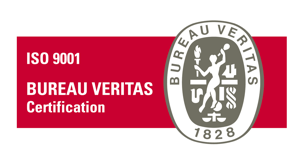記事

UPC procedure: what treatment for patent applications?
It has been a busy time for patent attorneys registered with the Unified Patent Court ("UPC"), totally overwhelmed by the large number of “opt-out” notifications filed.
The possibility of “opting out” is available not only to holders of granted European patents, but also to holders of European patent application under Article 83 point 3 of the UPC Agreement ("UPCA"): "3. Unless an action has already been brought before the Court, a proprietor of or an applicant for a European patent granted or applied for prior to the end of the transitional period under paragraph 1 and, where applicable, paragraph 5, (…), shall have the possibility to opt out from the exclusive competence of the Court. (…)”
Since opt-outs can concern patent applications, can they be the subject of an application for invalidation before the UPC? And can the owner of a patent application bring an infringement action before the UPC? Can a declaration for non-infringement be obtained against an application?
The answer is no, for the following reasons:
Article 3 of the UPCA provides that:
This Agreement shall apply to any:
(a) European patent with unitary effect;
(b) Supplementary protection certificate issued for a product protected by a patent;
(c) European patent which has not yet lapsed at the date of entry into force of this Agreement or was granted after that date, without prejudice to Article 83; and
(d) European patent application which is pending at the date of entry into force of this Agreement, or which is filed after that date, without prejudice to Article 83.
As mentioned above, a patent application can be the subject of an "opt-out" (Article 83).
Nevertheless, Article 2 of the UPCA provides the following definitions:
For the purposes of this Agreement:
(a) ‘Court’ means the Unified Patent Court created by this Agreement.
(b) ‘Member State’ means a Member State of the European Union.
(c) ‘Contracting Member State’ means a Member State party to this Agreement.
(d) ‘EPC’ means the Convention on the Grant of European Patents of 5 October 1973, including any subsequent amendments.
(e) ‘European patent’ means a patent granted under the provisions of the EPC, which does not benefit from unitary effect by virtue of Regulation (EU) No 1257/2012.
(f) ‘European patent with unitary effect’ means a patent granted under the provisions of the EPC which benefits from unitary effect by virtue of Regulation (EU) No 1257/2012.
(g) ‘Patent’ means a European patent and/or a European patent with unitary effect.
(...)
Consequently, when the UPCA and the Rules of Procedure (or "RoP") refer to "patent", this means "European patent granted and/or European patent with unitary effect granted", thus excluding applications. Only those provisions of the Agreement that expressly refer to patent applications apply to the latter, as does Article 83 referred to above.
Regarding the competence of the Court, Article 32 of the UPCA provides that:
1. The Court shall have exclusive competence in respect of:
(a) actions for actual or threatened infringements of patents and supplementary protection certificates and related defences, including counterclaims concerning licences;
(b) actions for declarations of non-infringement of patents and supplementary protection certificates;
(c) actions for provisional and protective measures and injunctions;
(d) actions for revocation of patents and for declaration of invalidity of supplementary protection certificates;
(e) counterclaims for revocation of patents and for declaration of invalidity of supplementary protection certificates;
(f) actions for damages or compensation derived from the provisional protection conferred by a published European patent application;
(...)
There is therefore no doubt that the actions referred to in paragraphs a, b, d and e cannot be brought on the basis of or against a patent application, including published applications.
However, regarding damages, paragraph f applies to compensation for infringement of a published patent application.
Rule 125 of the RoP, entitled "Separate proceedings for determining the amount of damages ordered", states that:
The determination of the amount of damages ordered for the successful party may be the subject of separate proceedings. The determination shall include the determination of the amount of compensation, if any, to be awarded as a result of the provisional protection conferred by a published European patent application [Article 32(1)(f) of the Agreement, Article 67 EPC] and compensation to be paid pursuant to Rules 118.1, 198.2, 213.2 and 354.2. The expression “damages” used in Chapter 4 shall be deemed to include such compensation and interest at the rate and for the period that the Court shall decide.
Paragraph f of article 32 of the UPCA and rule 125 of the RoP refer to the provisional protection provided by article 67 of the European Patent Convention ("EPC"), according to which:
(1) (...)
(2) "Any Contracting State may prescribe that a European patent application shall not confer such protection as is conferred by Article 64. However, the protection attached to the publication of the European patent application may not be less than that which the laws of the State concerned attach to the compulsory publication of unexamined national patent applications. In any event, each State shall ensure at least that, from the date of publication of a European patent application, the applicant can claim compensation reasonable in the circumstances from any person who has used the invention in that State in circumstances where that person would be liable under national law for infringement of a national patent."
(3) (...)
This means that when Article 32, which defines the competence of the UPC, refers to published European patent applications, it is only a reference to the possibility offered by the EPC of obtaining "reasonable compensation" for the period between the publication of the application and the grant of the patent.
Finally, Article 33 paragraph 8 of the UPCA states that:
8. Actions referred to in Article 32(1)(d) and (e) can be brought without the applicant having to file notice of opposition with the European Patent Office.
The following rules apply :
- A patent that has been granted but is still subject to opposition may be the subject of an application for invalidation before the UPC (in addition to possible opposition before the EPO).
- Patent applications, including published applications, may not be the subject of a request for invalidation before the UPC (Article 32 paragraph 1 d and e),
- Patent applications, including published applications, may not be invoked in support of an infringement action, nor may they be subject to an action for a declaration of non-infringement (Article 32 paragraph 1 a and b),
- In the course of an action for infringement of a granted patent before the UPC, which can only be brought after the patent has been granted
- damages may be claimed for the post grant period,
- and compensation, namely the equitable indemnity provided for under Article 67 of the EPC, may be claimed for the pre grant period and after the publication of the patent application.
In France, the procedural rules differ, since an infringement action may be brought based on a published French patent application, in which case the Court issues an automatic stay of proceedings until the patent is granted (Article L 615-4 of the French IP Code).
The same applies to an infringement action based on the French part of a published European patent application, provided that the claims are published in French or notified (in French) to the alleged infringer (Article L 614-9 of the French IP Code).
The upshot of the foregoing is that for proceedings before the UPC, practitioners should disregard national practice habits but rather appropriate the new legislative texts in order to provide the more adapted advice to clients.













